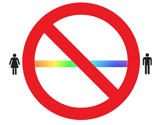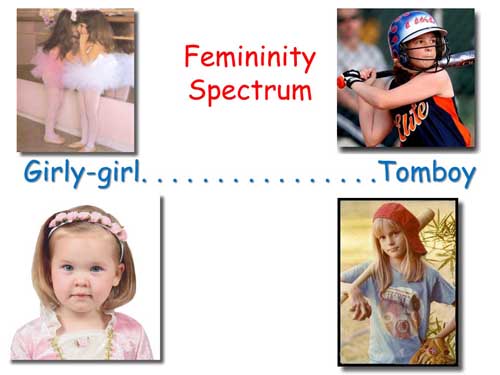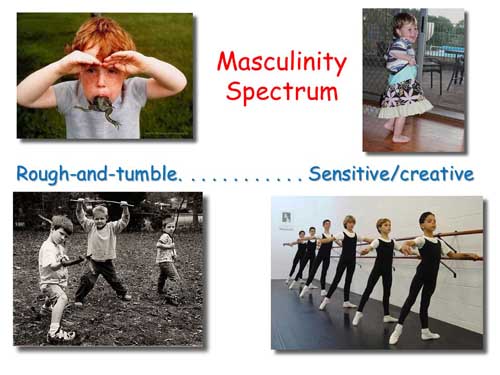Apr. 9, 2010
We live in the tension between contentment and craving. Whether you are married or single or widowed or divorced; dating, not dating, wanting to date, not wanting to date—for now, forever. If you are wondering about your sexuality or your sex-appeal, your marriage, the strength of your love or your hope. . . And if you can empathize with the faith-struggle of doubt and dashed or delayed dreams (because without empathy we are nothing but the annoying, repetitive clanging of construction in the city streets) . . . Angela Severson has bravely opened a vein to unleash the power that only life-blood has for the healing and cleansing of telling the truth.
This poem is so very well done. I’ve never seen anything like it. It’s holistic and honest and inspiring and right on the money. The single life and the married life illustrate and teach us about life with Christ and the character of God. The story of “This Life” is one that all too often gets marginalized and left untold, or told unwell—But, we’re doing better. When both stories are told (and listened to), all lives (and theologies) are enriched.
This Life
We wait, we long for, we pine after, … we desire, we yearn. We wait.
I wait
I am thirteen
Puberty explodes like a rash, an epidemic.
My girlfriends hold hands with boys we only months ago snickered at, turned up our noses at, as though their very essence was a disease. Now the disease appears to be, that my girlfriends can’t stop gawking over these same specimen. I decide to play along and choose my crushes. I crush my way through high school, waiting to be asked out. Waiting by locker stalls during break, waiting for a nudge in the hall, a simple “hey,” a nod. I wait, standing pressed against the wall, through all the slow songs on Friday nights in the darkened gymnasiums. I wait for an invitation to senior prom. I wait.
Through this waiting, I feel like it is not working, meaning me.
Something is not working with me…my friends acquire boyfriends, hold hands, kiss, and I acquire journals, stashed by my bedside, full of wonderings and waiting.
{Wait: as defined by Webster’s: To be ready and available}
It is July.
I’m twenty-two.
My days of being a serial “crushest’ are about to end.
I am standing in a parking lot surrounded by pigeons pecking at croissant crumbs. The aroma of Newman’s fish-n-chips deep fat fryers heating up engulfs me. In the slant of the morning sun my current crush tells me, that he has a crush on me.
……finally! He likes me and I like him. So, this is what it’s like to be loved, this is what I’ve been waiting for… this messy, dizzy, complicated, delicious, heart pounding love. We dance the dating dance for months and then on a quiet unexpected spring day he wants me to be his…asks me to be his, opens the door to the promise of forever and stamps soul-mate on my heart.
{Wait: as defined by Webster’s: To stay in a place of expectation of}
I am twenty-six.
I am engaged to the same fellow.
I am still waiting.
I’ve waited through friends getting married, through showers and bridesmaids dresses, through banquets and bouquet tossing, through Martha Stewart Wedding Magazines and honeymoon trip photos. It is now my turn. I am next in line to run from the church doors dodging birdseed and blessings.
However, love is delicate, as fragile as the blossoms of spring, opening in trust to the slanting sun and quick to close in the cool of the evening, so too was this promise, one that could not take hold, a love aborted, out of fear and wisdom, full of pain, and awe. Stunned with grief, the love in my heart shrinks, evaporates, dies and God becomes small, cruel and unkind.
Hope aborted.
For what do I wait?
Am I waiting for what I want, or what I need?
For that which I desire, or believe that I deserve?
Am I longing for wisdom? …opening myself to the God, who loves me into this deep-down empty sorrow…
{Romans Eight}
“In the same way the Spirit helps us in our weakness. We do not know what we ought to pray for, but the Spirit himself intercedes for us with groans that words cannot express. And he who searches our hearts knows the mind of the Spirit, because the Spirit intercedes for the saints in accordance with God’s will.”
I am 30 or 32 or somewhere in between.
I have dates that last 10 minutes or 2 years. I avoid answering calls from some and linger hours by the phone waiting for others. In and out of love, infatuation, intrigue…sometimes going through the motions, other times knowing he is.
….I’m into men, I’m tired of men. One day I’m free as a bird and content in my singleness, the next I am desperately pining away for every male that crosses my path, searching his finger for a wedding ring. I seize the day, travel over seas, take classes, switch careers, indulging in the delights and rewards of being single and still I wait. I watch my married friends build homes, families and history.
It is summer wedding season again. My cousin is getting married. I congratulate myself that I am actually excited about being there, really o.k with my place in life, o.k. that I don’t have a date for this wedding, feeling genuinely happy for the two tying the knot. At the reception, between sipping white wine and sampling stuffed mushrooms, she approaches me….that token distant relative, you know the one…she has known me since birth, and kept up on me through my parents Christmas cards…and she asks “So are you going to be next?” I politely answer that I am not currently dating anyone…and she replies, “Well, what is a pretty girl like you still doing single?” Deep in my heart I have to trust that she means well, but the thoughts in my head and the words about to fly off my tongue feel like dragon fire. I want set blaze to her lovely over-sprayed doo. I smile and shrug, and pop another mushroom in my mouth to choke down my anger and my shame. “Yeah, what is wrong with me?” A moment ago I was confident in my singleness and now I feel other. I feel like a freak of nature, an alien, a misfit. I feel shaken.
{Hebrews 11/12}
“All these people were still living by faith when they died. They did not receive the things promised, they only saw them and welcomed them from a distance. And they admitted that they were aliens and strangers on earth……They are longing for a better country- a heavenly one. Therefore God is not ashamed to be called their God, for he has prepared a city for them……..Therefore, since we are receiving a kingdom that cannot be shaken, let us be thankful, and so worship God acceptably with reverence and awe, for our “God is a consuming fire.”
I am thirty-six.
I am single.
Singleness seems to be the new “have it all” lifestyle.
I decide to take a break in my day, a little escape from work.
I brew my cup of tea, add a dash of cream and sit back on the sofa with a magazine for some creative inspiration. I flip open into the middle and look down on the page. It is an advice column. The first question I glance at reads {Capital Q, semicolon} “Help, Please! What should I say to people who ask “why are you single?” It’s so rude, I can never think of a response. (yeah, I agree and can’t wait to hear the answer) {Capital A, semicolon} Shake your head, frown and say, “I loathe giving up all the fabulous sex” The answer hits me in the gut. I feel sad, disgusted, disappointed and angry. I’m appalled at the culture in which I live and yet not surprised. What do you expect, Angela….this world is not going to encourage you in your singleness, at least in a moral sense. I’ve read that singleness is on the rise…more people are single now that ever before. I want to think, great, I’m not so different, not so alone, but there is a huge chasm that defines this single lifestyle. The chasm is sexuality. It is one thing to be single and living with someone, single and sleeping with someone, single and sleeping with anyone and a very different state to be single and abstinent.
Abstinent not because it feels good or is pious, but because it honors God. Choosing abstinence out of obedience and respect for the vulnerability of the human body and spirit. I am ashamed to admit that I often hide the truth that I am nearly forty and a virgin. In this culture being a virgin makes me feel small, prude, asexual. Some nights I lay in bed at night aching to be held, longing for sexual intimacy. Gravity pulls my bones toward the earth, my body fills hollow…..I lay one hand on my belly and the other over my breast, not with the intention of arousal, but to be held. It would be easy to deny my sexuality and I have. But tonight I want to acknowledge that my body was designed for sexual intimacy, and although that yearning is not being fulfilled, I am still a sensual creation.
{Psalms 139}
“You hem me in – behind and before; you have laid your hand upon me.”
{Martin Luther}
“This life, therefore, is not righteousness, but growth in righteousness;
not health, but healing;
not being, but becoming;
not rest, but exercise.
We are not yet what we shall be, but we are growing toward it.
The process is not yet finished, but it is going on.
This is not the end, but it is the road.
All does not yet gleam in glory, but all is being purified.”
I am thirty-eight.
There are days when I feel content knowing that I am growing in wisdom, I am awaiting the Kingdom. That my singleness is just part of my journey here, it is the color of my life. Our stories all get colored in, mine just happens to be green at the moment.
Perhaps I’ll meet someone and get married and then I’ll get to add some purple and red, but today it’s green. I feel blessed with my greenness, alive and grateful. I love my career. I have rich, beautiful friends, and family….. my daily needs are always met, and still there is this tension.
I’m driving home from Eugene, marveling over the spring grass, the baby lambs, the sinking sun…the beauty is intoxicating and warm tears roll down my cheeks. I’ve just come from holding my new godson. His sweet newborn smell, his fragile breath, his parents (my beloved friends) and his sisters (my other two god children) all nestled in unison. This is a family. In this moment I am so grateful to be a part of it, but now I must travel north on I-5 towards home, alone. These tears are full of sorrow and joy, so bittersweet. In my heart I hold the hope that I may one day receive the blessing of a family like this earth but I know that this earth in all it’s beauty, is broken, so that for which I was made, I may not receive. There are bigger promises, larger hopes…to that I must cling.
{Hebrews 11}
“none of them received what had been promised. God had planned something better for us so that only together with us would they be made perfect.”
{Wait: as defined by Webster’s: To look forward expectantly, to hold back expectantly.
To remain neglected or to remain in readiness.}
Today, as I write this, it is hard to wait.
I squirm. I writhe.
My skin crawls. The discomfort is visceral. Anything would feel better than here. The loneliness penetrates and all I see around me is what I don’t have. I hike through Forest Park and I see love and families. I see holding hands and holding hearts. I see couples with babies and couples with dogs and couples melting into one another, sharing food, laughter, words and breath. I cry out “God, spare me from this loneliness, this waiting. I want my feelings to change. I feel guilty for not being satisfied with what I have in this moment. My head knows the gospel’s truth.
The God of the Universe cares for me, loves me to the core, is for me,….and he has promised me life.
Not this life, but the everlasting kind.
The one without pain and suffering, hungering and squirming. A promise that is more than I can conceive, contain, or deserve. His grace covers the reality that my heart, at this moment, does not feel any better with this knowledge. I feel small and fragile, achy, and tired. Right now I am marred then I shall be perfect, right now I am broken, then I shall be fixed. I cry out for redemption.
{Deuteronomy 31}
“Never will I leave you; never will I forsake you.”
What is it that I wait for? For what do I long? Is it Connection? Wholeness? Safety? Love?
I wait with myself, with my family, my friends,
I wait with my neighbor, the clerk at the grocery store, the lady next to me on the bus.
I wait with those across the country, across the sea, across the world, in places I know nothing of, filled with people waiting….
They wait for things that I have. They wait for warm food in their bellies and water on their lips, they wait to see their sick child healed, or the miracle of their bodies restored, they wait for a soft place to lay down at night, and the demon voices in their heads be stilled. The wait for the terror to stop and the monsters slain. We all wait.
We wait for hope, for freedom, for comfort
We wait for love.
Deep, deep love that will never fail. A love that will fill us.
We wait for Christ.
{Romans 8}
“For I am convinced that neither death nor life, neither angel nor demons, neither the present nor the future, nor any powers, neither height nor depth, nor anything else in all creation, will be able to separate us from the love of God that is in Christ Jesus our Lord.”
Angela Severson
http://www.imagodeiwomen.com/2010/03/this-life.html
This blog post originally appeared at http://reneamac.com/2010/04/09/to-live-is-christ/

 When I use the term “gender spectrum,” you might think in terms of masculinity on one end and femininity on the other. We hear men being prompted to “get in touch with your feminine side.” (For some reason, women never seem to be exhorted to “get in touch with your masculine side.” Huh.)
When I use the term “gender spectrum,” you might think in terms of masculinity on one end and femininity on the other. We hear men being prompted to “get in touch with your feminine side.” (For some reason, women never seem to be exhorted to “get in touch with your masculine side.” Huh.)
